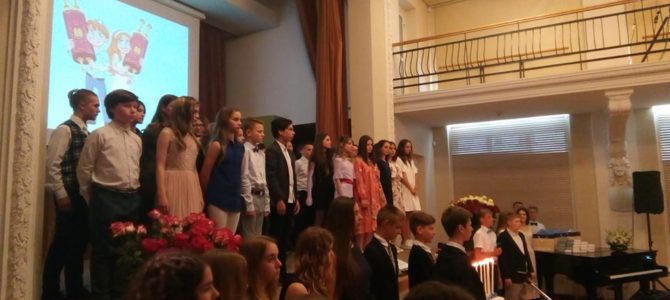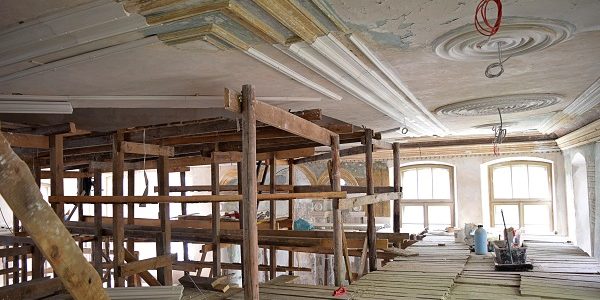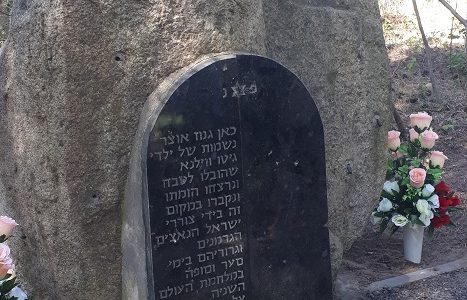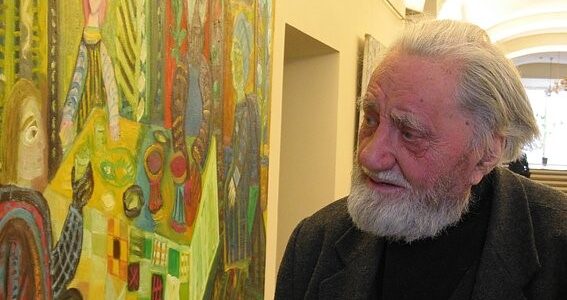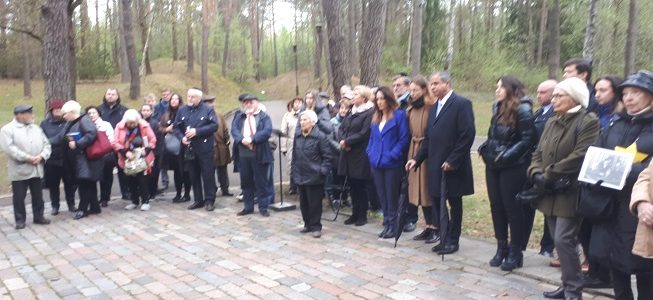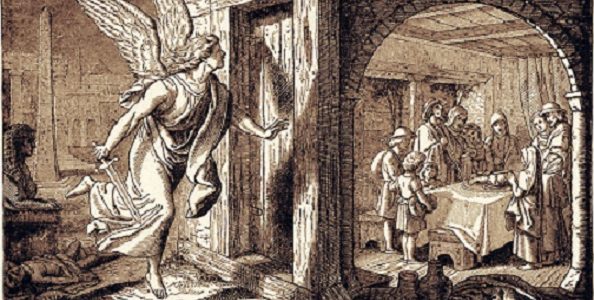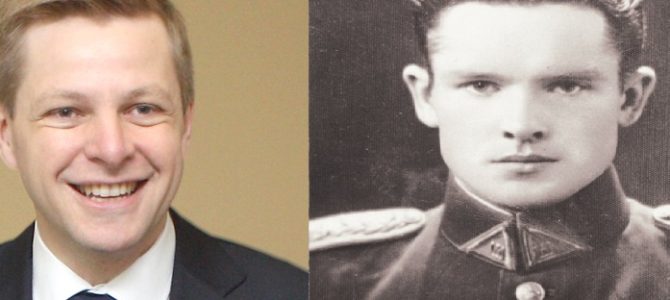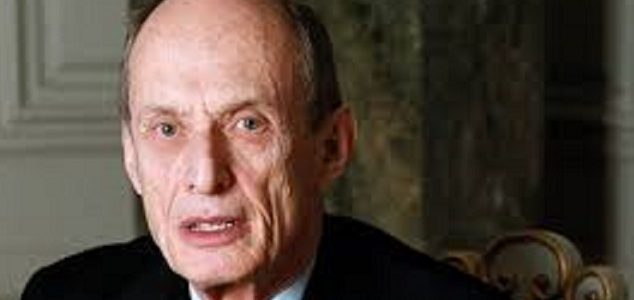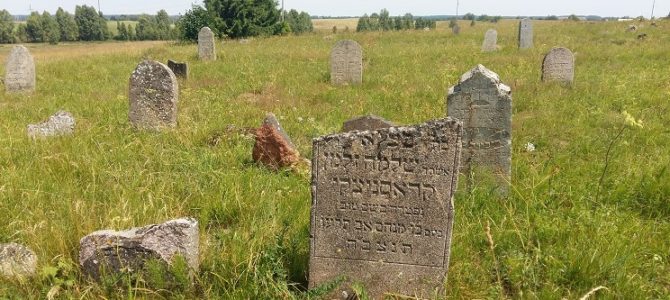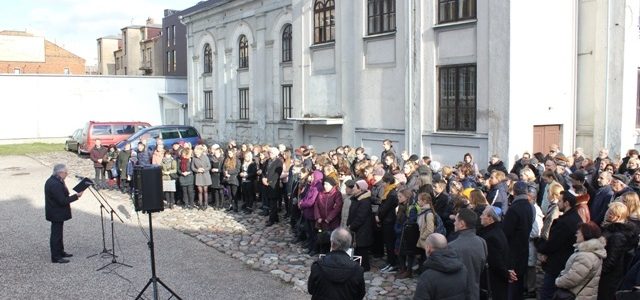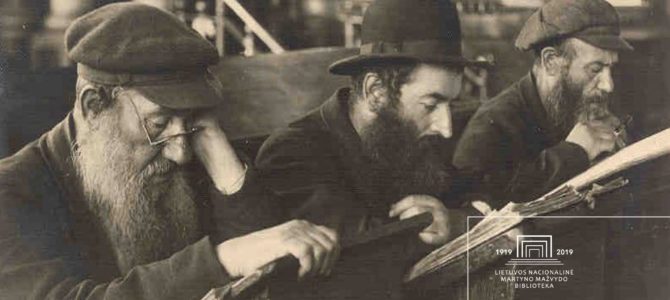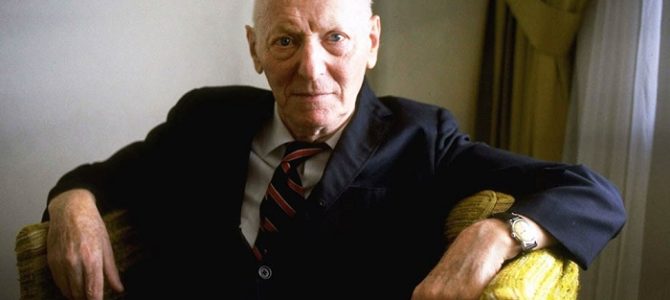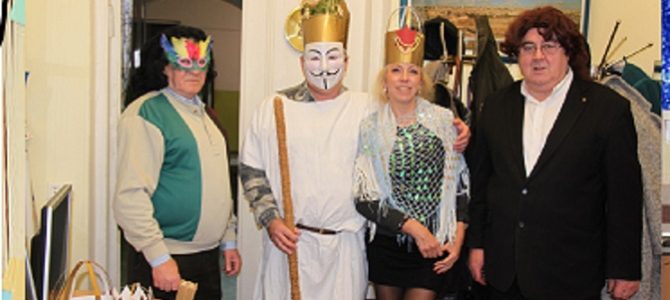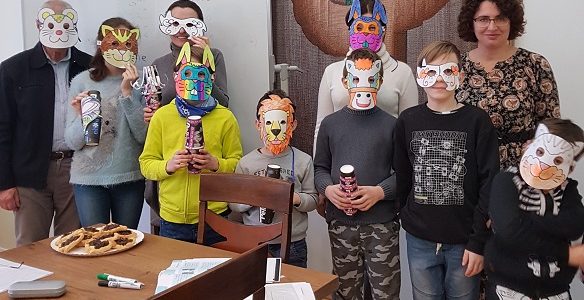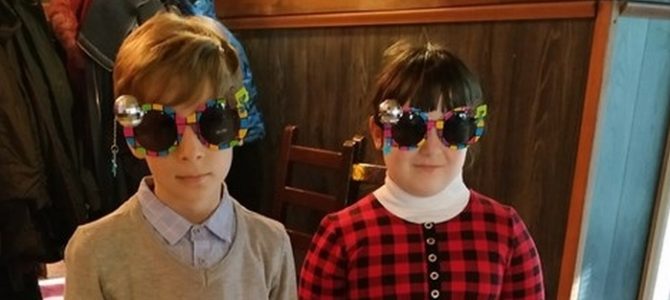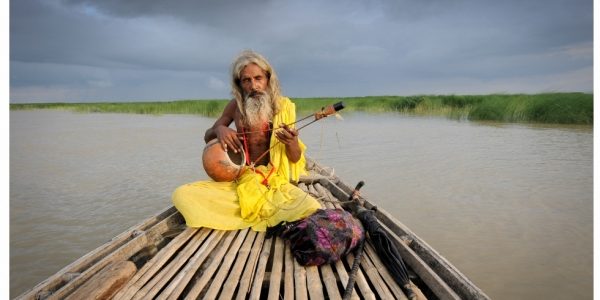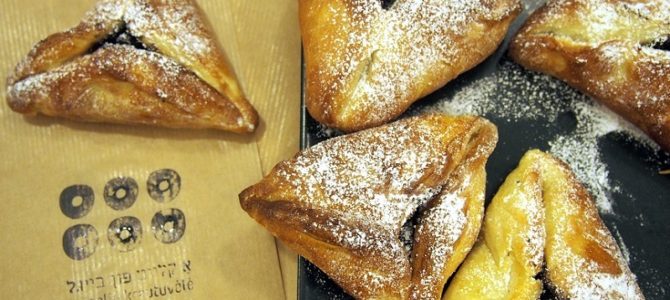Fifty-six seventh graders from the Sholem Aleichem ORT Gymnasium in Vilnius celebrated their bar and bat mitzvas Monday. This coming-of-age ceremony is extremely important in Judaism. Following the ceremony a boy or girl is considered an adult. Whereas before his or her parents are responsible for the child following the traditions and laws of Judaism, after the ceremony the individual is himself or herself responsible and has the right to study Torah, follow its laws and is considered responsible for his or her actions.
Leron Blank celebrated his bar mitzva at the Choral Synagogue in Vilnius. Before the ceremony Rabbi Sholom Ber Krinsky spoke about how significant this ceremony is for every Jewish boy, his family and his friends.
“This is a great joy–publicly, following all the rules–to celebrate bar mitzva! My bar mitzva was at home with the curtains closed… We were, after all, afraid… It was dangerous… So we really appreciate what we have,” Sholem Aleichem Gymnasium principal Miša Jakobas said at the ceremony. Leron read a passage from the Torah out in public, an essential part of the ceremony. His parents, teachers, relatives and friends watched with obvious emotion.


